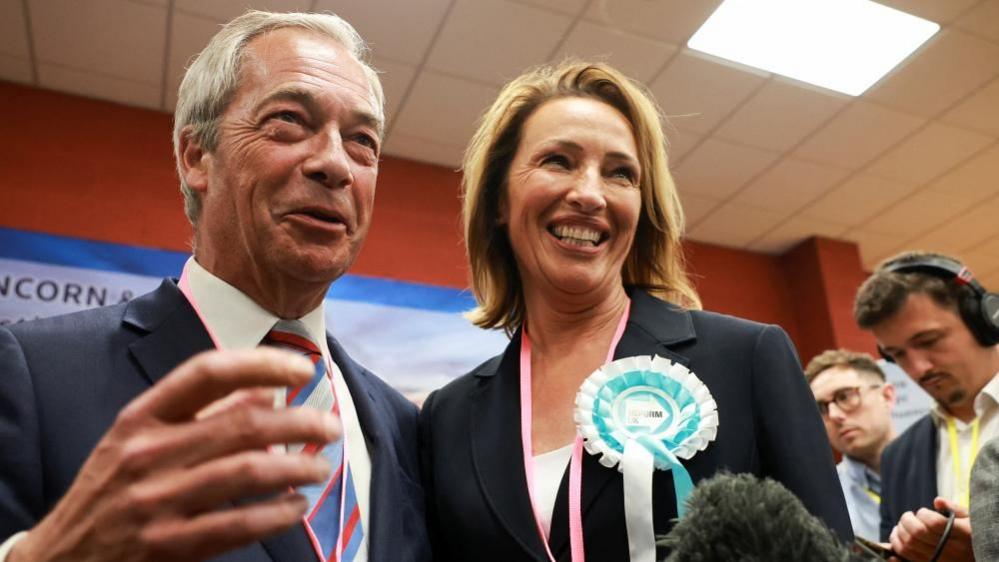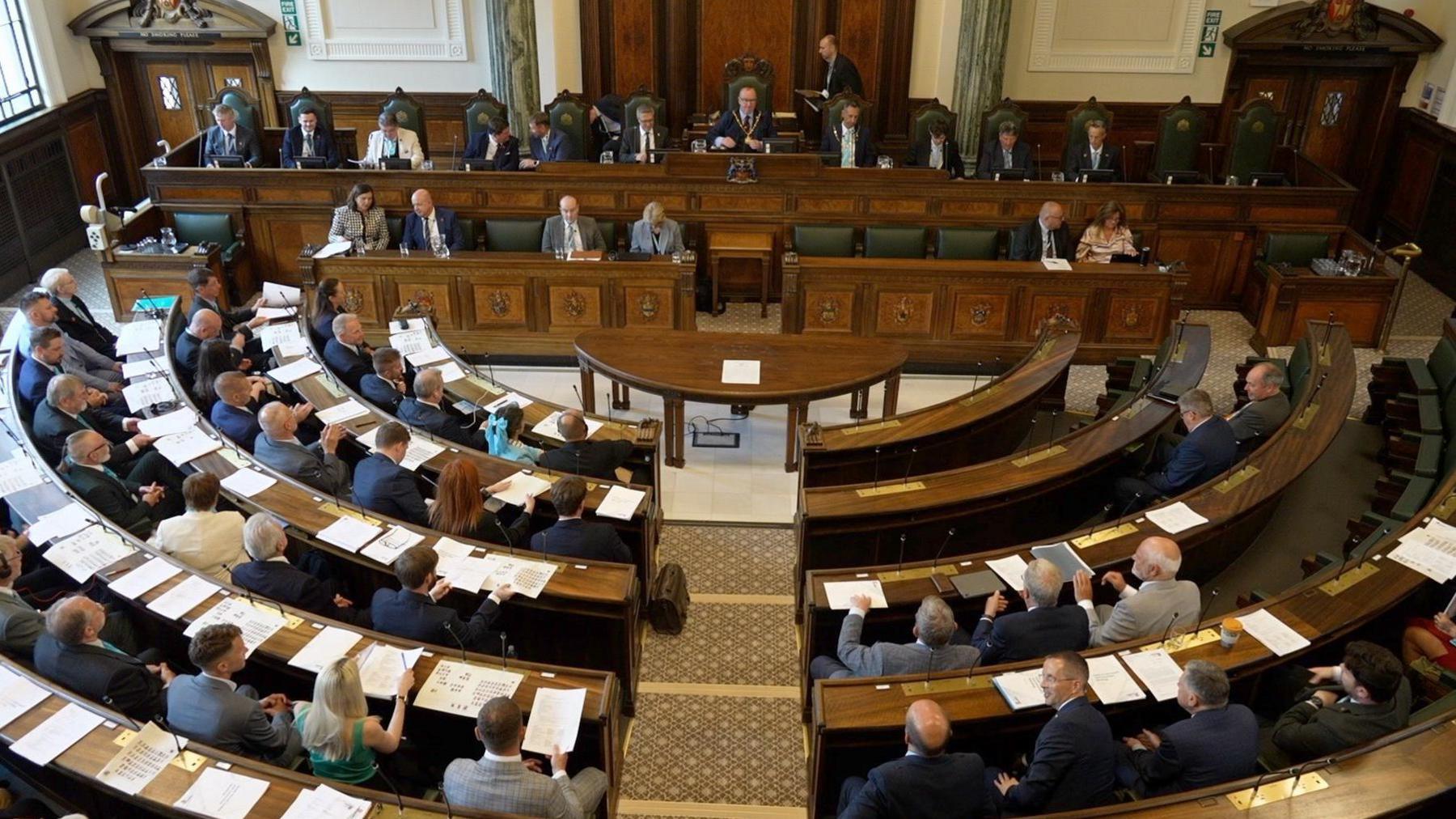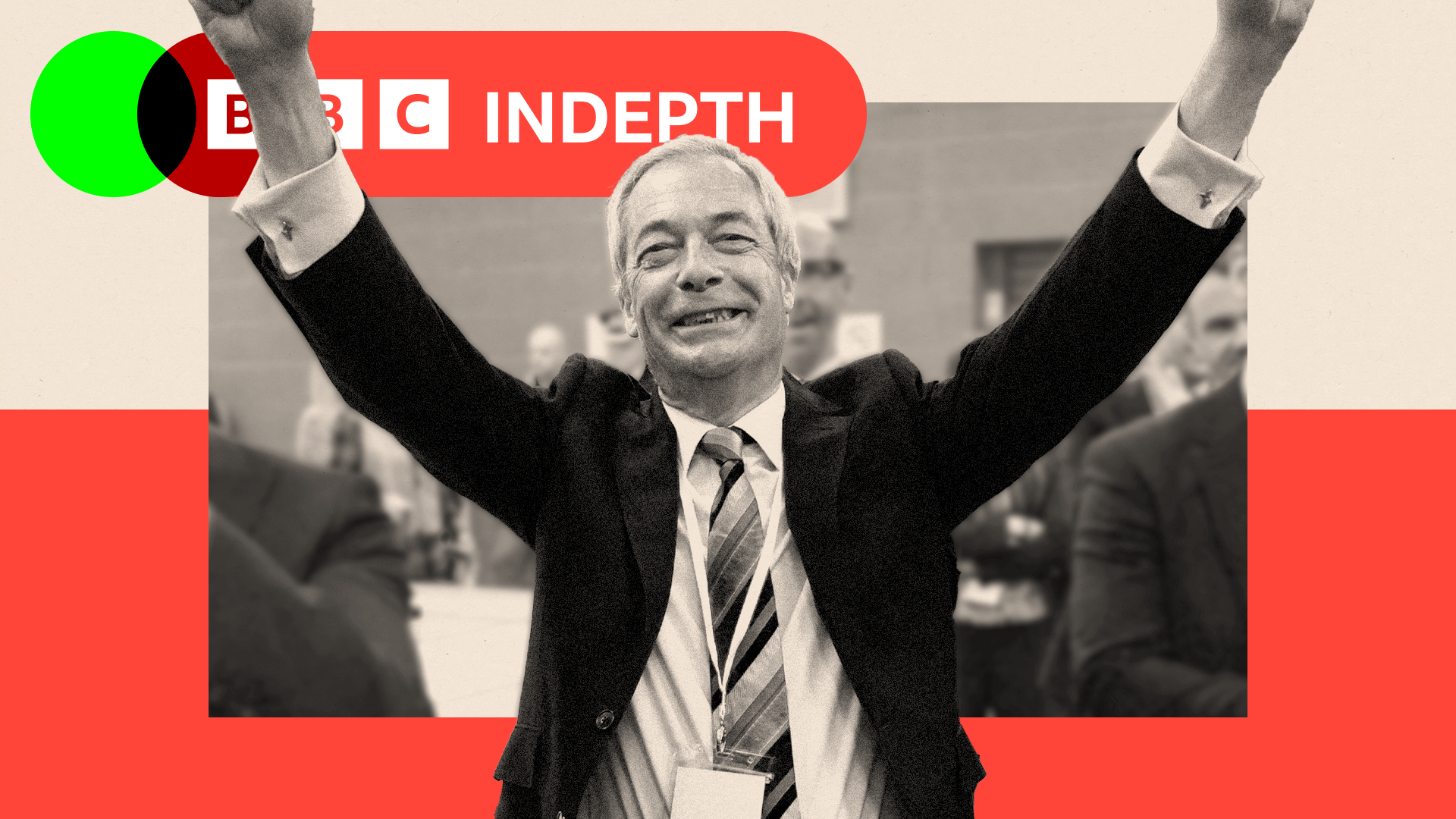Reform UK struggles to find friends to share council power
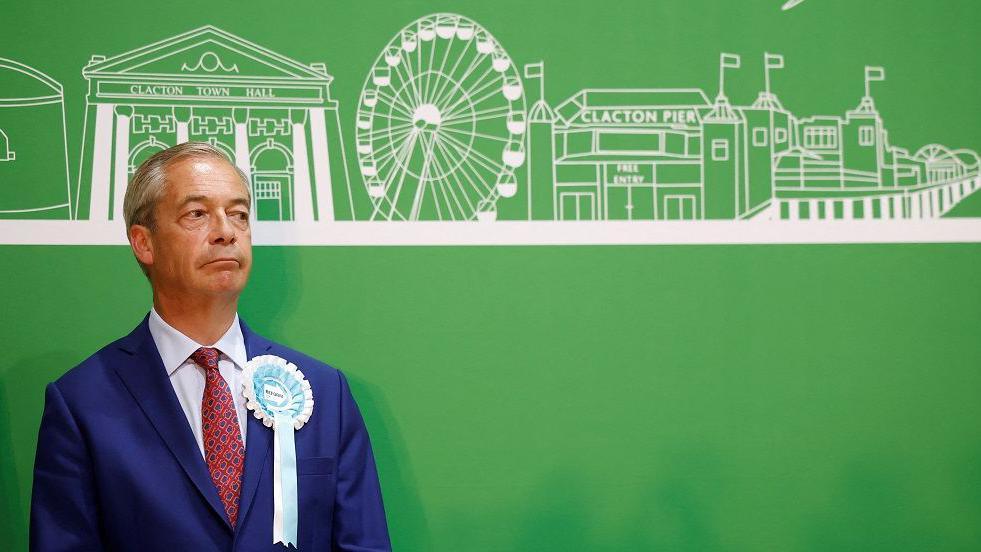
- Published
Reform UK's success in the recent local elections has propelled many councillors with limited or no political experience into council chambers across England.
While Reform UK's rise was the big story of those elections, almost half of the councils up for grabs were not won outright by any single party.
That means many of those newbie councillors are now navigating so-called hung councils, where parties with little in common often work together to get the business of local government done.
But so far, it hasn't panned out that way for Reform UK, which isn't involved in any formal coalitions, pacts or deals in areas where there were local elections this year.
This was despite rampant speculation about Reform-Conservative coalitions ahead of the polls, with party leaders Kemi Badenoch and Nigel Farage not ruling out council deals.
So, what's going on?
Minority rule
In some places - Warwickshire, Worcestershire and Leicestershire - Reform UK has enough councillors to form minority administrations and is attempting to govern alone.
In other areas where coalitions were possible, Reform UK has either shunned co-operation or vice versa. Where Reform UK has explored potential partnerships locally, its policies have been viewed with suspicion by the established parties.
In Cornwall, the Liberal Democrats, Labour and the Conservatives refused to work with Reform UK, even though it was the biggest party and had won the most seats.
Instead, the Lib Dems teamed up with independent councillors to run Cornwall Council as a minority administration.
That infuriated Reform UK's group leader in Cornwall, Rob Parsonage, who branded the coalition deal "undemocratic" and "a total stitch-up".
Did other parties contrive to exclude Reform UK? The newly minted Lib Dem council leader, Leigh Frost, does not think so.
"The reality is our core values at heart of it just stand for two very different things and it makes working together incompatible," Frost told the BBC.
"And then Reform was given two weeks to try to form an administration and chose not to."
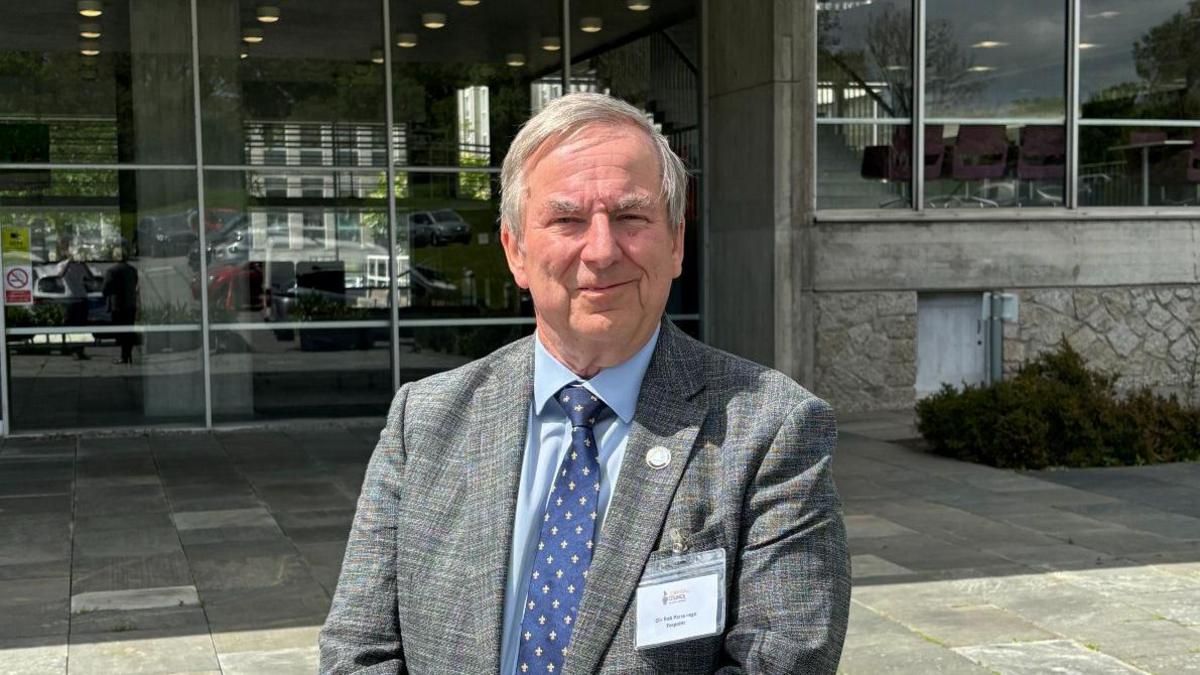
Rob Parsonage said the Lib Dem-independent administration was "undemocratic"
Frost said Reform UK's Cornwall candidates mainly campaigned on immigration.
This was echoed in conversations with other local party leaders across the country.
The BBC was told Reform's candidates had little local policy to offer and mostly focused on national issues, such as stopping small boats crossing the English Channel.
Slashing "wasteful spending" by councils, like Elon Musk's Department of Government Efficiency (Doge) in the US, was also a common campaign theme.
In Worcestershire, where Reform won the most seats but fell short of a majority, the party's supposed lack of local policy was a major sticking point for the Conservatives.
"They haven't got a local prospectus and that was part of the problem," said Adam Kent, Tory group leader on Worcestershire County Council.
"They didn't stand on any local issues. It was on national politics. How can you go into coalition with somebody if you don't even know what they stand for?"
Joanne Monk, the Reform UK council leader in the county, said she only had "a brief couple of chats" with other party leaders but was uncompromising on coalitions.
"I'm damned sure we're not on the same wavelength," she said.
She followed the lead of Farage, who ruled out formal coalitions at council level but said "in the interests of local people we'll do deals", in comments ahead of the local elections.
In Worcestershire, Reform UK's minority administration may need to do deals to pass key decisions and avoid other parties banding together to veto their plans.
Recognising this, she acknowledged other parties were "going to have to work with us at some point".
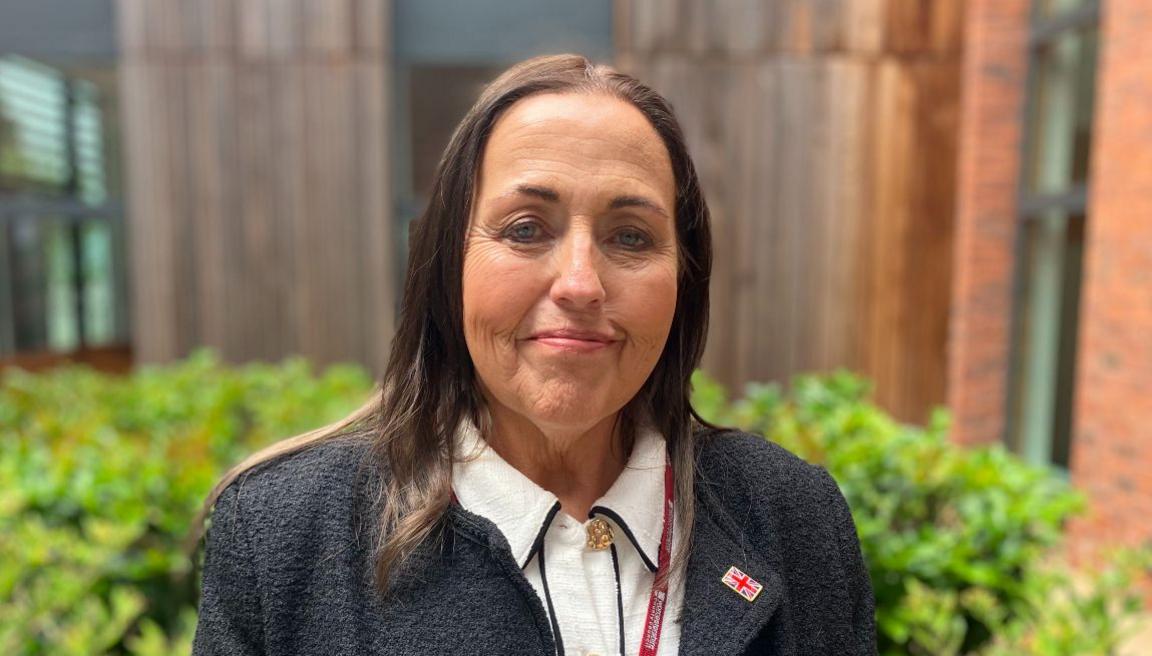
Joanne Monk said Reform UK wasn't on the "same wavelength" as the Tories
In Northumberland, the Conservatives retained their position as the largest party and gave the impression they were willing to entertain coalition talks with Reform UK, which gained 23 seats.
"I said I would work with anyone and my door is open," said Conservative council leader Glen Sanderson.
"But Reform the next day put out a press release saying the price for working with the Conservatives would be extremely high. So on that basis, I assumed that was the door closed on me."
No talks were held and the Conservatives formed a minority administration.
Weeks had passed after the local elections before Mark Peart was voted in as Reform UK's local group leader in the county. As a result, he wasn't in a position to talk to anybody.
"Everything had already been agreed," Peart said. "It was too late."
Training ground
Reform UK sources admitted the party was caught a bit flat-footed here and elsewhere as many of its new councillors got the grips with their new jobs in the weeks following the local elections.
A support network for those councillors, in the form of training sessions and a local branch system, is being developed by the party.
But this week Zia Yusuf, one of the key architects behind that professionalisation drive and the Doge cost-cutting initiative, resigned as party chairman, leaving a gap in the party's leadership.
Reform UK's deputy leader, Richard Tice, said the party's success at the local elections "was partly because of the significant efforts and improvements to the infrastructure of the party" spearheaded by Yusuf.
Though Yusuf is gone, the party has considerably strengthened its foundations at local level, after gaining 677 new councillors and two mayors.
A Reform UK source said party bosses will be keeping an eye out for stand-out councillors who could go on to become parliamentary candidates before the general election.
They said in areas where Reform UK runs councils as a minority administration, it's going to take some compromise with other parties and independents to pass budgets and key policies.
In the messy world of town halls and council chambers, that could be a tough apprenticeship.
Related topics
- Published3 May
